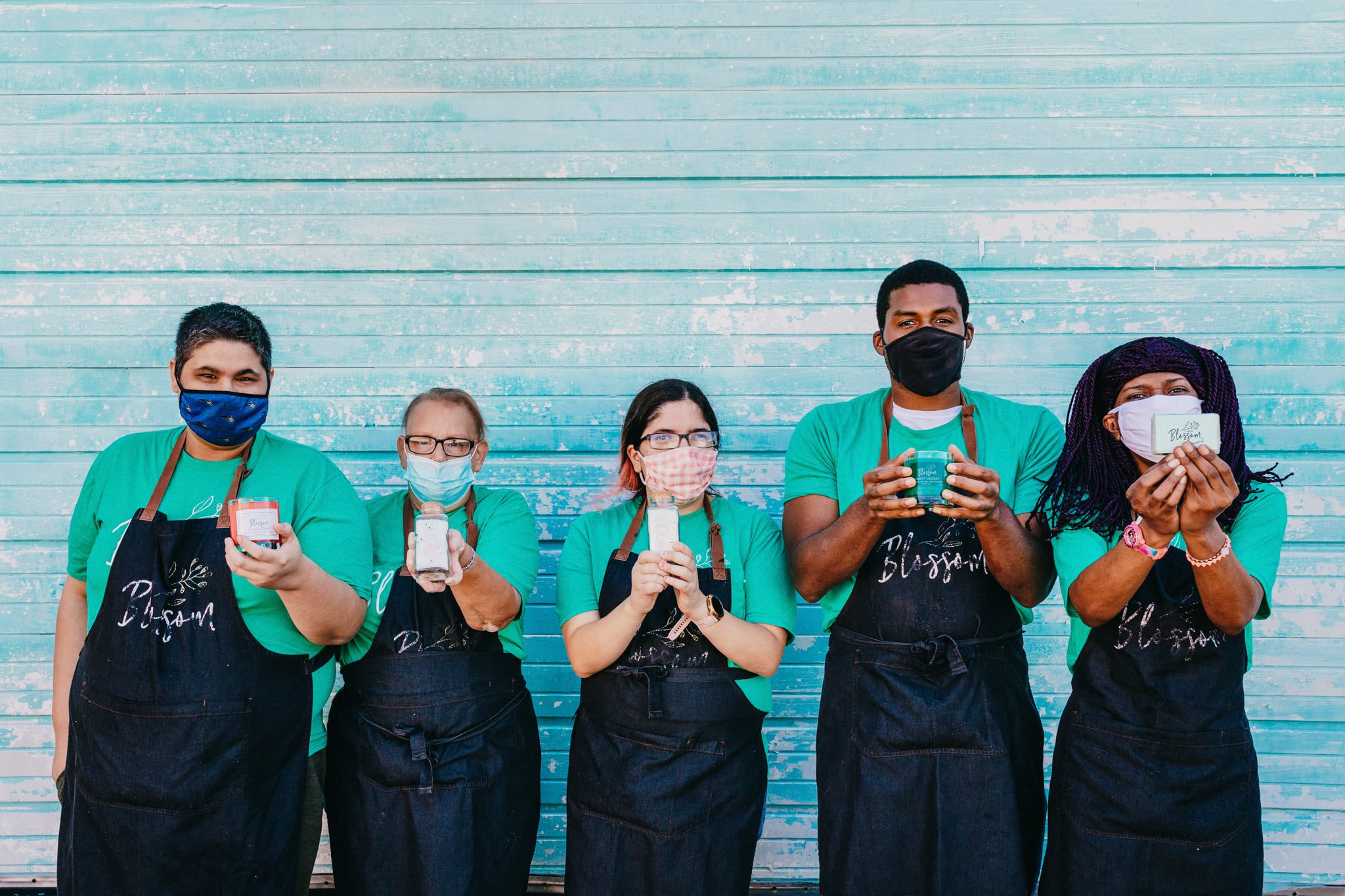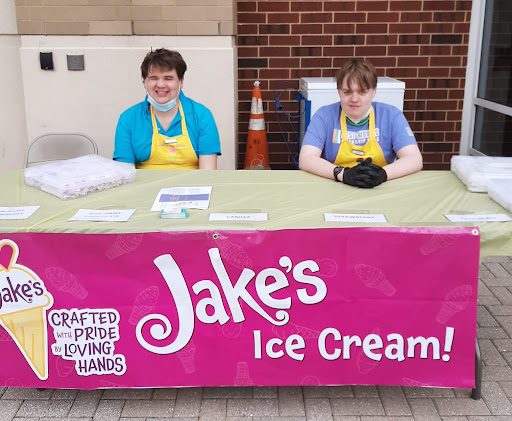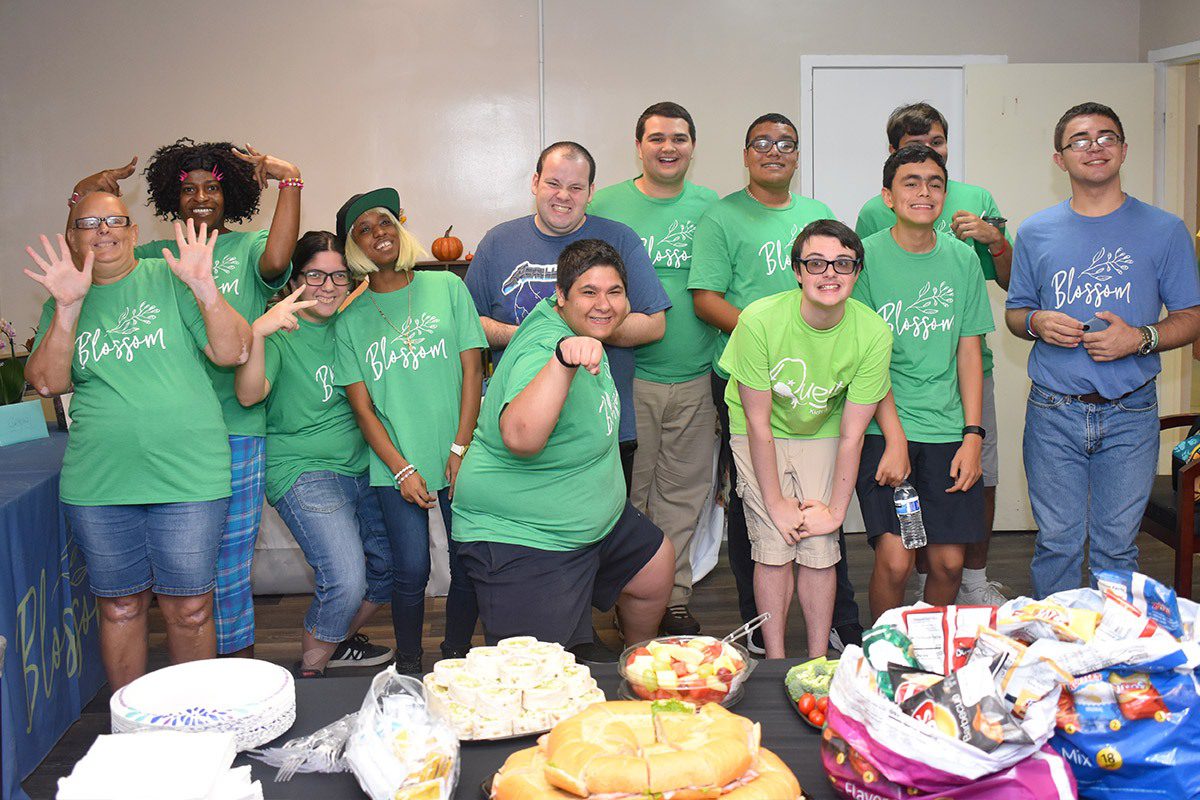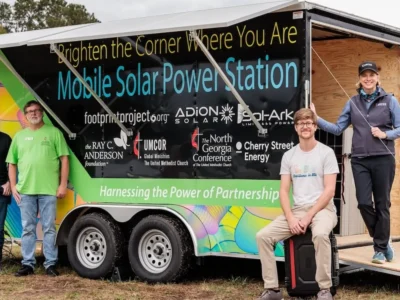Jake had worked for the same company making wire products like EKG leads and battery cables for about eight years when COVID hit. The company he worked for was unwilling to make accommodations for his team to work and instead let them go. Jake found himself out of a job and unable to find work for a year and a half.
It’s a common scenario many adults with developmental disabilities face. Despite a deep desire to work and contribute in meaningful ways to their community, there aren’t always employers willing to work with this population. In fact, according to the National Core Indicators Report, 81% of individuals with developmental disabilities are unemployed, many of which are willing and able to work if they are given the right support.

Blossom Artisanal
Some organizations, like Blossom Artisanal, a branch of Quest, Inc. in central Florida, are non-profit organizations dedicated to providing a variety of training, coaching, and vocational opportunities for adults with developmental disabilities. The teenagers and adults with developmental disabilities who are employed by Blossom make all-natural, handcrafted, artisanal products. They are responsible for every stage of production, from hand producing soaps, candles, baths, and teas to packaging and shipping products. They even grow, dehydrate, and prepare their own flowers and herbs to be used in their products. According to their website, 100% of all proceeds go towards providing jobs and services for individuals with developmental disabilities.
Learn more about Blossom Artisanal and follow them on Instagram.
Jake’s Ice Cream

Other organizations are motivated to serve this population in a different way. Robin Rinearson, Jake’s aunt, was tired of watching Jake and his peers miss out on job opportunities. Robin has worked as an optometrist for 45 years and had a decent nest egg set aside for retirement, but as she watched her nephew struggle through unemployment, she knew she had to do something.
“I didn’t plan to work in my retirement,” Rinearson said. “I could just play.” Instead, Rinearson began investigating what it might look like to open a for-profit ice cream parlor that specifically employed individuals with developmental disabilities. While she was still working as an optometrist, she found an ice cream parlor that had shut down during COVID and had decided to close permanently.
The way forward turned out not to be as easy as Rinearson hoped. The leasing manager for the existing parlor’s space didn’t seem to understand Robin’s objectives with her business and appeared to be hesitant about leasing to a business that wanted to employ people with developmental disabilities. Robin is a fighter, but despite making every effort to jump through the various hoops placed in front of her by the leasing agency and going to the vice president of the property directly, the company ultimately decided not to rent to her. She’s determined to file a federal complaint against the company for discrimination.
In the meantime, Robin was able to find a different space for the ice cream parlor (ironically owned by the same property development firm, but managed by a different leasing agent). While they worked to build out the new space, Robin went to work hiring and training staff members. Through her optometry practice, Robin knew nearly a dozen adults and parents who wanted their son or daughter to work at Jake’s. She hired 11 directly from the connections at her practice.
While she was still working as an optometrist, “I started training them in my house every weekend. They learned to make cake pops, milkshakes, waffle cones, and so on, meeting around our dining room table,” Robin said.
Jake’s Ice Cream has been up and running for almost a year, and Robin continues to learn more about working with individuals with developmental disabilities. The complications of budgeting for and staffing a seasonal business with this population can be particularly challenging.
“I have almost 30 employees,” Robin shared, but because of various social services and government assistance available to them, “Some can only work one day a week. No one works more than 20 hours a week. It takes a lot of people to get the job done. We have to be able to produce a product (ice cream, confections, etc.) so that the business supports itself. It takes a lot to cover that.”
Despite the challenges, Robin sees the fruit of her labor.
“The kids that work there all love it – I have a combination of a handful of non-disabled people. Some who are independent enough to not need a job coach. Some need an individual job coach, who starts off with that disabled person working one-on-one until they master the tasks they are supposed to do then backs away. And others have a group coach who is there with the employees five days a week for two shifts,” said Robin. She has a wait list of people who want to work at Jake’s.
Jake’s makes their own ice cream on the premises in small batches, with 28 flavors on the menu including non-dairy, vegan, and sugar-free options. They also make in-house waffle cones, cake pops, ice cream cakes and cupcakes, and hot cocoa bombs.
Thanks to the Americans with Disabilities Act of 1990, this population’s rights are protected more than ever before in the United States. As followers of Jesus, Christians can take up Christ’s example of reaching out to and serving those society sometimes views as “the least of these,” as integral parts of the body of Christ.
Learn more about Jake’s Ice Cream and follow them on Instagram or Facebook.





 Copyright
2024
Root and Vine
Copyright
2024
Root and Vine